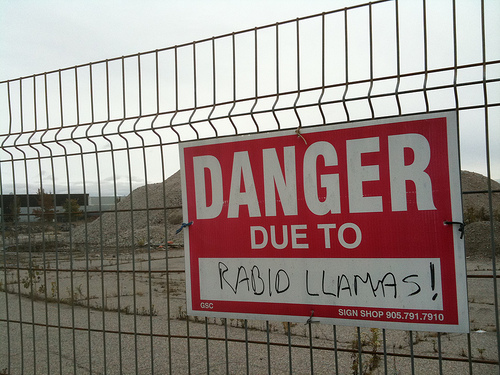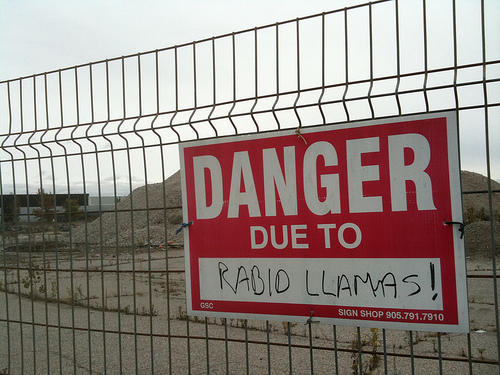If rabid environmental activists don’t get their way, the rest of us might end up rabid too. This year’s drought is leading to a huge jump in rabies rates in stricken states, and climate change will only make it worse.
The heat wave and drought in the southern states, which NASA’s James Hansen says is conclusively caused by climate change, is driving rabies-prone animals closer to human habitation:
While the number of reported rabid animals declined nationwide in 2010, according to the most recent federal data,states such as South Dakota, Kansas and Texas have recently seen a jump in the number of skunks testing positive. In drought-stricken Texas, more than 1,000 animals last year were exposed to rabid skunks, double the number in 2010. “More skunks seem to have migrated to suburban areas where there is water,” said Ernest Oertli, a veterinarian with the Texas Department of State Health Services.
Carlsbad County in New Medico is also having its biggest rabies outbreak since the ’70s, with 30 skunks testing positive — versus zero in the previous 15 years.
Rabies isn’t the only disease that climate change stands to exacerbate, though it’s maybe the most visually dramatic. There’s also an unusually high risk of Lyme disease this year, because wildly cycling temperatures led to a large population of ticks and a small population of non-human things for them to bite on (plus an early start to tick season in this year’s unusually warm weather). Bird flu, yellow fever, dengue fever, and Hendra virus are also getting a bump from the climate. So, good news, everyone! Many of us won’t get a chance to be killed by apocalyptic weather events, after all.




